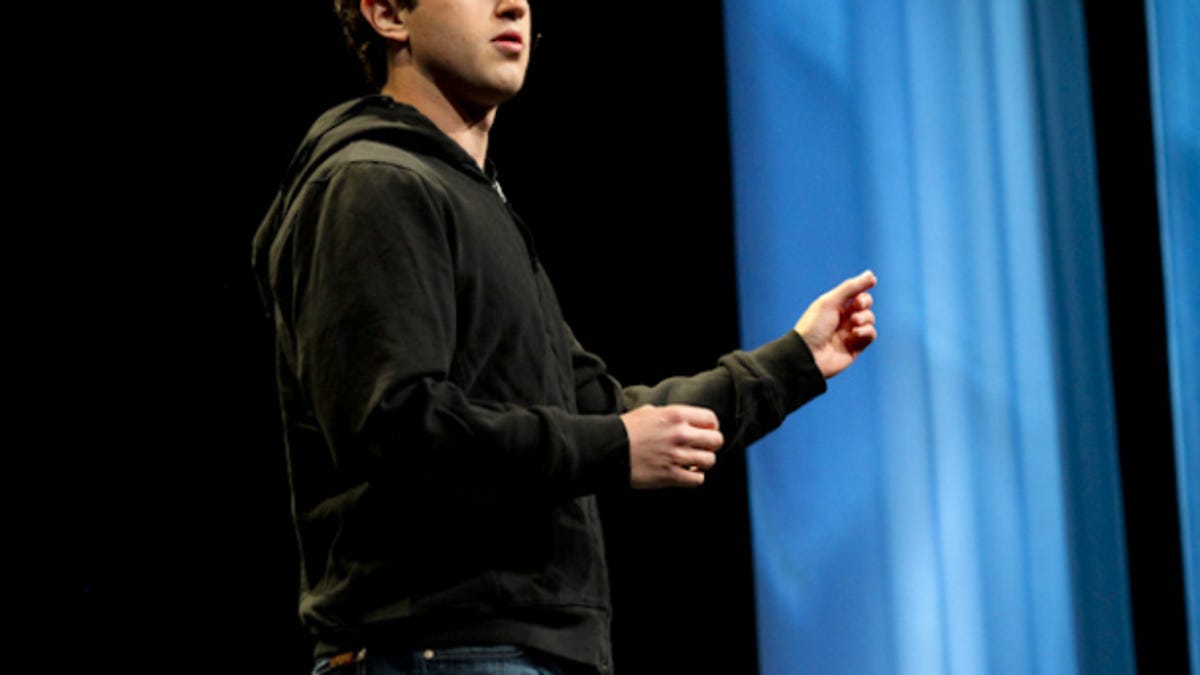King Zuck's reign weakens, albeit slightly
Insiders are selling more of their shares in Facebook's IPO, meaning Mark Zuckerberg will see his control slip.

As the demand for Facebook's IPO has driven up the price range, a number of insiders have decided sell off more shares because, apparently, the offer is too rich to pass up.
Some of those insiders are selling shares that, while not owned by Zuck, awarded him their voting power.
The upshot: Zuckerberg's voting control post-IPO will slip to 55.8 percent from 57.3 percent. Hardly a big deal, but worth noting since Zuckerberg is determined to keep control of Facebook -- just as he has since it turned from a Harvard dorm room project to a business back in 2004.
Among those selling more into the IPO: Digital Sky Technologies, a Russian investment firm that played a key role in Facebook's funding over the years, is selling almost 46 million shares, up from the 26 million it initially planned to get rid of. And venture capitalist Peter Thiel, who is now selling 16.8 million shares, instead of the 7.7 million he had previously planned to offer.
The way Zuckerberg has maintained such a tight grip on Facebook is through creating a dual-class stock structure -- class A shares for the common people, class B for for Zuck and other insiders and early investors. The B shares come with more voting rights.
Google's founders took heat for just such a thing when their company went public in 2004, but still the recent batch of tech companies have followed this model. Institutional investors typically hate this structure because it makes it impossible to force change at a company. But for now -- with the hype in full force -- people on Wall Street aren't thinking that far ahead.

